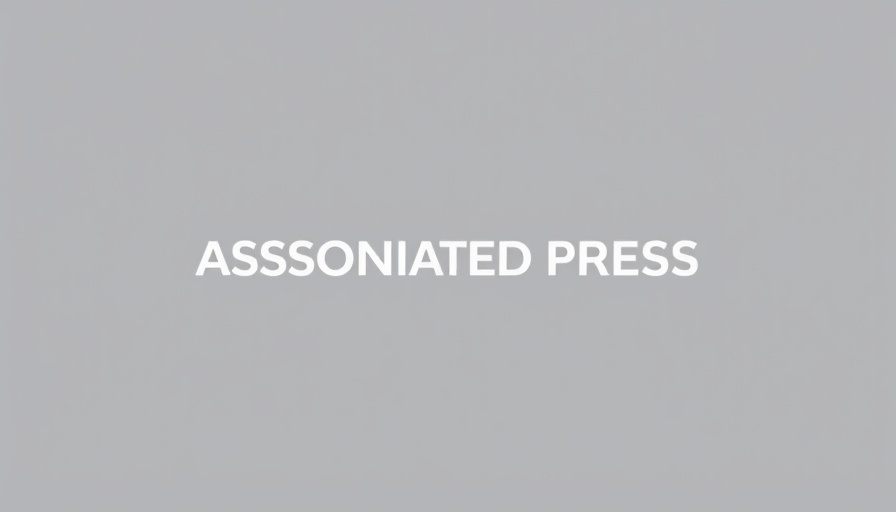
A Controversial Comeback: What Boar's Head is Facing
Boar’s Head, a brand synonymous with premium deli meats, is poised to reopen a plant in New Castle, Indiana, that became infamous following a devastating listeria outbreak last year. This outbreak not only claimed the lives of 10 individuals but also left dozens more sickened, casting a long shadow over the company’s reputation.
In the wake of these tragedies, recent inspections at other Boar's Head facilities have revealed sanitation issues reminiscent of those that precipitated the deadly outbreak. Such findings raise critical questions about the company's commitment to the highest food safety standards, particularly as they attempt to regain consumer trust.
Understanding the Listeria Outbreak and Its Implications
The listeria contamination at Boar’s Head exposed a significant vulnerability within the food processing industry. This bacterium, often found in deli meats, is especially dangerous for pregnant women, the elderly, and immunocompromised individuals. The repercussions of foodborne illnesses can be severe, not just for the individuals affected but for entire communities that rely on these food products. The Maine Center for Disease Control emphasized the importance of ensuring food safety in such industries, stating, "Food safety is a cornerstone for public health, and any lapse can lead to dire consequences." So, how can Boar's Head turn this situation around?
Sanitation Issues: A Repeated Pattern
Recent reports suggest that the sanitation problems preceding the reopening of the New Castle plant are indicative of a larger trend. Inspections have found similar problems at several Boar's Head manufacturing sites. Seemingly, these issues are more than isolated incidents; they underscore a systemic failure in maintaining hygiene and safety protocols.
Food safety experts have voiced concern that the revelations about persistent sanitation issues may drive away loyal customers. With the heightened awareness of food safety stemming from the pandemic and subsequent food outbreaks, consumers are becoming more discerning about their choices.
The Consumer's Dilemma: Trust vs. Taste
As Boar's Head prepares to reopen, consumers face a tough choice: do they continue to trust a brand that had a significant failure in food safety? The emotional and health-related concerns are valid, reflecting on the broader implications of food safety in consumer choices.
On social media, trending discussions on this topic reflect a split among consumers. Many express apprehension toward Boar's Head products, while others argue that the brand's quality and taste outweigh the risks. This creates an intriguing narrative that encapsulates the ongoing dialogue about food safety in a post-pandemic world. According to reports on trending news on social media, discussions continue to dominate conversations around food safety practices and responsiveness in the food industry.
The Future of Food Safety: Predictions and Opportunities
The reopening of the New Castle plant could potentially serve as a bellwether for the meat processing industry. As society shifts toward prioritizing health and transparency, companies may begin embracing technology to ensure food safety. Predictive analytics and artificial intelligence could play crucial roles in quality control, allowing companies like Boar's Head to analyze vast amounts of data to identify safety threats before they become full-blown crises.
Additionally, as consumer preferences evolve, there may be a push for more local sourcing and sustainable practices within the food industry. Companies that quickly adapt to evolving consumer standards will likely emerge as leaders in ensuring food safety and quality standards.
Consumer Engagement and Company Accountability
As Boar's Head reads the public's sentiment through this operation, it must proactively address the concerns regarding food safety. Investment in transparency, education, and community engagement could rebuild trust. One effective method could include communicating changes and improvements in safety measures through social media platforms, thus maintaining an active dialogue with consumers. Food safety is not merely a technical requirement; it is vital to public health and trust. By taking steps to improve their practices in response to the outbreak, companies can regain consumer trust, contributing to improved industry standards overall.
Conclusion: It's Time to Act
As Boar's Head stands on the cusp of reopening, it has the unique opportunity to set a new standard in the industry. By addressing sanitation issues head-on and prioritizing consumer health, they can demonstrate their commitment to both quality and safety. This dedication is crucial to reclaiming their standing in a market increasingly influenced by consumer awareness and social responsibility. Now more than ever, it’s clear that the power lies with the consumer—you have the voice to demand better accountability and practices from food providers.
 Add Row
Add Row  Add
Add 




Write A Comment